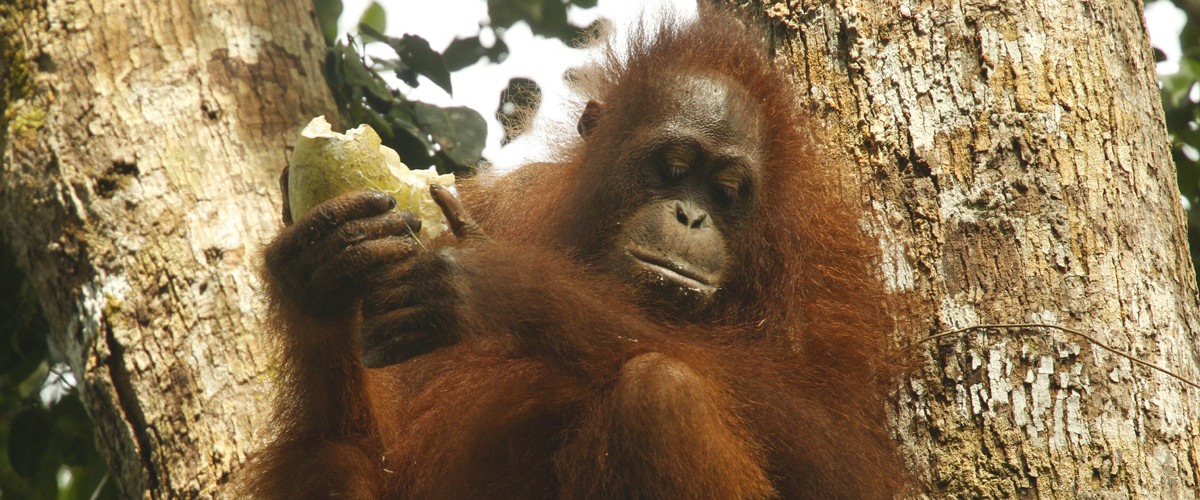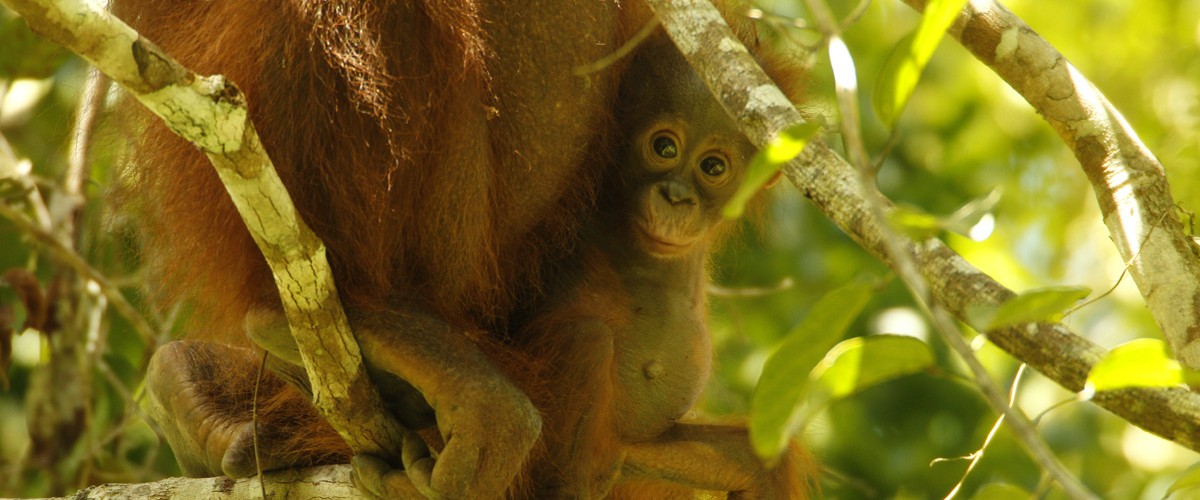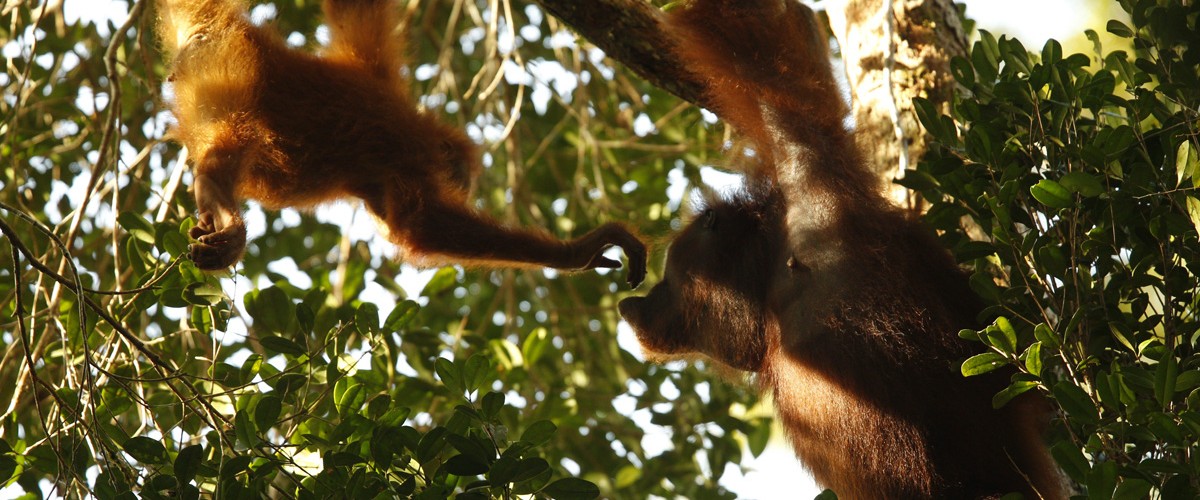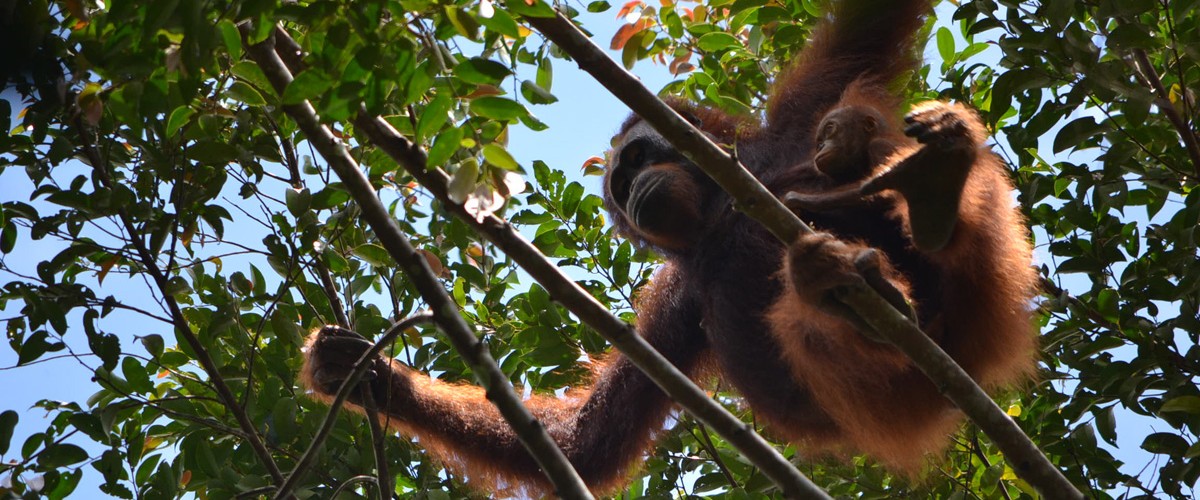By Laura Brubaker-Wittman, Boston University PhD Candidate
This is Laura Brubaker-Wittman and I am so happy to have finally made it to Indonesia! Because of the COVID-19 pandemic, the Indonesian government halted the issuance of research visas for the past couple of years. Finally, in June 2022, I was one of the first researchers to have my permit approved. I am a Fulbright Fellow, which enabled me to first spend three months in the beautiful city of Yogyakarta, taking lessons to further develop my Indonesian language skills before starting my research at Cabang Panti and the Rangkong camp in Gunung Palung National Park.
As one of Dr. Knott’s PhD students, I study the behavior and the health of unhabituated orangutans and compare them with habituated orangutans. Habituation is the process of an orangutan becoming used to human presence, so that we can follow them through the forest, record their behavior and collect urine and fecal samples without disturbing them. But, when we meet a new orangutan for the first time, they are often surprised to see us! They aren’t quite sure what humans are; are we friends or predators? Sometimes they will hide high up in a tree or run away, or they might make kiss-squeak vocalizations or curiously study us while they eat and sit on a branch. As time goes by, the orangutans become more familiar with us, realizing that we are just curious about them as well! Eventually, they seem to ignore us, going about their day while we take data.

For my research, I am studying the various ways unhabituated orangutans react to humans. Why does one orangutan hide while another runs away? One difference may be because of their age or sex. For example, if an adult female orangutan has a baby with her, she might find that it is easier to hide because then she does not have to worry about carrying the baby while running away. Or, it might depend on fruit availability. If an orangutan encounters humans while eating fruit and there isn’t another fruit tree nearby, the orangutan may decide it is better to stay and eat than to leave.
With the new research camp in the Rangkong area, we have been able to follow and study many unhabituated orangutans! In March, I spent a week there following an unhabituated flanged male with field research assistants Herman and Hassan. The flanged male did not run away from us, but he did kiss-squeak a lot and stared at us from his resting spot in the tree. He also encountered a female orangutan with her baby. At first, she was nervous, but the flanged male acted calm, and she seemed to follow his lead. They hung out in a tree together very close to us for hours! Maybe the orangutans help to habituate each other!

I also collect fecal samples which I will later test for cortisol levels at the national BRIN labs in Bogor, just south of Jakarta. I am excited for this collaboration with Dr. Taufiq Nugraha who helped establish the protocol for measuring fecal cortisol levels in wild orangutans. Working with my Indonesian counterparts, including Dr. Nugraha, all the amazing field assistants at Cabang Panti and the Rangkong, the field lab assistants, Sumi and Ishma, and the GPOCP Research Manager, Rizal, has been such an incredible and rewarding experience. Their hard work and dedication to the research and conservation work done by GPOCP and Yayasan Palung is so inspiring!
In fact, as a final component of my research, I am conducting an ethnographic study focusing on the field assistants of Cabang Panti. I am curious about their thoughts on orangutans and the relationships they build with these animals. I have learned about the importance of mutual understanding between humans and orangutans and how this makes our research that much richer and fuller. I am so impressed by everyone I work with and humbled to be a part of their and the orangutans’ lives.

Management of Cabang Panti Research Station is conducted by the Gunung Palung National Park Office (BTN-GP) in collaboration with GPOCP/YP. Scientific research is carried out in conjunction with the Universitas Nasional (UNAS) and Boston University.









